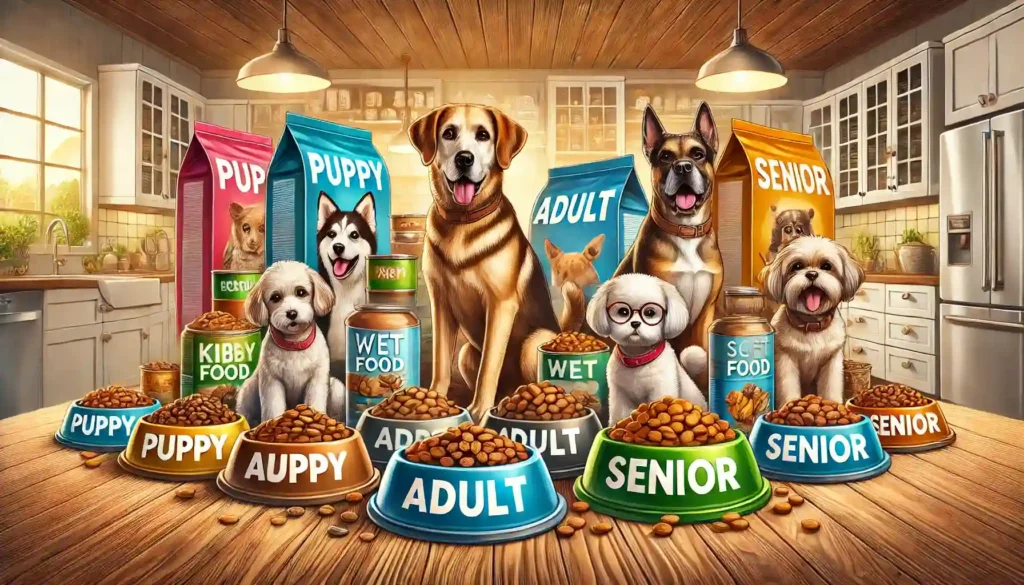Dogs spend a significant portion of the day snoozing. While it’s perfectly normal for dogs to sleep more than humans, you might still wonder: Why does my dog sleep so much? Understanding your dog’s sleeping habits can help you ensure their happiness.
Evolutionary Behavior
Dogs are descendants of wild animals. Their ancestors spent long hours resting after intense hunting. This evolutionary behavior has carried over to domesticated dogs.
Domestication hasn’t erased this instinct; instead, it has adapted to fit a dog’s modern life. While our pets don’t need to hunt anymore, their bodies still follow the same biological programming. This is why they sleep so much even without strenuous activity.
Dogs are also crepuscular animals. They are most active during dawn and dusk. In the wild, this would have been advantageous for hunting. Many prey species are also active during these times. As a result, dogs tend to be alert and energetic early in the morning and late in the evening. They naturally wind down during midday and nighttime.
If your dog seems to nap excessively during certain times of the day, it could simply be following its natural circadian rhythm. Understanding this pattern can help you better manage their daily routine and ensure they get enough exercise during their peak activity hours.
Puppies and Senior Dogs Sleep More
A dog’s age plays a significant role in how much they sleep. The amount of sleep a dog needs varies dramatically depending on their stage of life.
Young pups require a lot of sleep. Their bodies are growing rapidly. On average, puppies sleep between 18 to 20 hours a day! Growth spurts demand an immense amount of energy. Sleep is essential for their proper development.
During sleep, their bodies produce growth hormones, repair tissues, and strengthen muscles. Their high-energy play sessions deplete their energy quickly. This necessitates frequent naps to recharge. It’s not uncommon for a puppy to fall asleep mid-play or curl up in a cozy spot after a bout of zoomies.
Owners should allow puppies to sleep as much as they need. Interrupting their rest could hinder their growth and development.
Older dogs also tend to sleep more due to reduced stamina and slower metabolism. As dogs age, their activity levels decrease. They spend more time resting to compensate for joint pain, muscle stiffness, and age-related conditions. Arthritis, cognitive decline, and vision and hearing loss all contribute to increased sleepiness in senior dogs.
Additionally, older dogs may experience disruptions in their sleep-wake cycles. This leads them to take more frequent naps throughout the day.
Adult dogs typically sleep around 12 to 14 hours a day. This depends on breed, size, and individual health factors.
Breed Differences

Dogs aren’t equal when it comes to sleep patterns. Certain breeds are known for being laid-back and prone to long naps, while others are full of boundless energy and require constant stimulation.
Larger breeds sleep more than smaller breeds. This tendency is partly due to their slower metabolism and greater caloric needs. These leave them feeling tired quickly. For example, a Great Dane might happily snooze for 16 hours a day, while a Jack Russell Terrier would be bouncing off the walls after just a few hours of rest.
Working breeds were originally bred to perform herding livestock, pulling sleds, and guarding property. These dogs have higher energy levels. They stay alert longer if they have tasks to perform. Without adequate mental and physical stimulation, however, even working breeds can become bored and resort to napping excessively.
On the other hand, Basset Hounds, Shih Tzus, and Pugs were developed primarily to provide companionship rather than perform labor-intensive jobs. As a result, these breeds tend to be more relaxed and enjoy lounging around. They’re perfectly content spending hours curled up on the couch.
Understanding your dog’s breed-specific traits can provide valuable insight into their sleeping habits. If you adopt a mixed-breed dog, consider researching their potential ancestry to gain a clearer picture of their likely temperament and energy levels.
Lack of Stimulation
Dogs thrive on stimulation. Without adequate exercise, your dog might resort to sleeping out of boredom. A sedentary lifestyle makes an energetic dog lethargic over time.
Dogs crave engagement. When these needs aren’t met, they may turn to sleep as a way to pass the time.
To combat boredom-induced lethargy, ensure your dog gets enough daily exercise and enrichment activities. Taking them for walks, playing fetch, and teaching new tricks can keep their minds sharp and reduce excessive sleeping.
Interactive toys also provide hours of entertainment. For highly energetic breeds, activities like agility training and obedience classes can channel their energy constructively.
Remember, every dog is different. Tailor their activities to suit their personality and abilities. A hyperactive Labrador Retriever might love a game of Frisbee, while a mellow Greyhound might prefer a leisurely stroll around the block.
Health Concerns
Occasional laziness is normal. But excessive sleeping accompanied by other symptoms could indicate underlying health issues.
Low thyroid function can cause lethargy, weight gain, and increased sleepiness. Hypothyroidism is relatively common in Golden Retrievers and Doberman Pinschers. If your dog appears unusually tired and has gained weight despite eating normally, consult your vet about testing for this condition.
Unexplained fatigue and changes in appetite could signal diabetes. Other symptoms include excessive thirst, frequent urination, and unexplained weight loss. Early diagnosis and treatment are critical for managing this disease effectively.
Fever, infections, and chronic diseases can lead to prolonged periods of rest. For example, tick-borne illnesses like Lyme disease or ehrlichiosis can cause lethargy, lameness, and fever. Respiratory infections, urinary tract infections, and gastrointestinal problems can sap your dog’s energy
Dogs experiencing emotional distress sleep more than usual. Major life changes can trigger anxiety. Signs of emotional distress include loss of interest in food, reduced interaction with family members, and excessive sleeping. Providing extra attention, maintaining a consistent routine, and consulting a professional trainer can help alleviate these issues.
Environmental Factors
A dog’s environment heavily influences their sleep schedule. Weather, household routines, and social interactions either promote or disrupt healthy sleep patterns.
Many dogs love curling up and sleeping during rainy days. The lack of sunlight and cooler temperatures naturally encourage rest. This mimics their ancestors’ behavior of conserving energy during harsh weather conditions.
Similarly, hot weather makes dogs sluggish and seek shade for extended naps. Brachycephalic breeds are particularly sensitive to heat and sleep more to avoid overheating.
Moving to a new home, introducing another pet, and altering daily schedules disrupt your dog’s routine. This causes them to sleep more until they adjust. Sudden changes can create stress. This leads to increased sleepiness.
Sleep habits of dogs can be influenced by the people and animals around them. A lonely dog sleep more out of boredom, while a dog surrounded by lively family members stay awake longer. Ensuring your dog receives plenty of positive social interaction can encourage balanced sleep and activity levels.
Most of the time, a sleepy dog is a content dog. But keep an eye out for red flags. If your dog is sleeping way more than usual, it’s worth checking in with a vet. Otherwise, let them enjoy their beauty rest.




